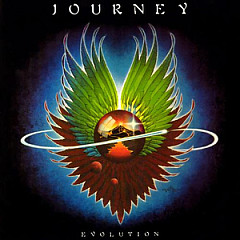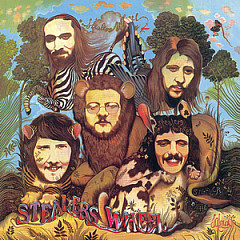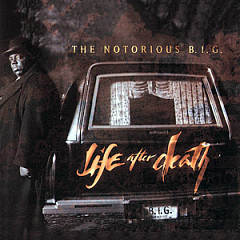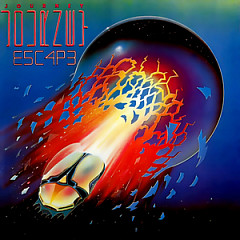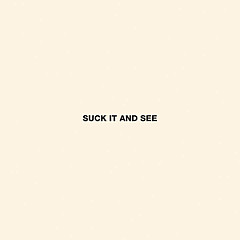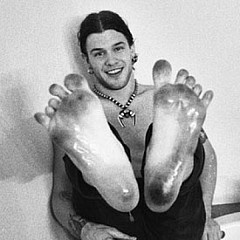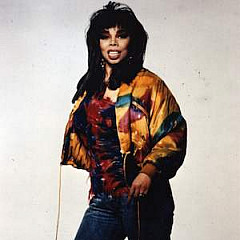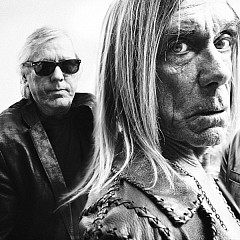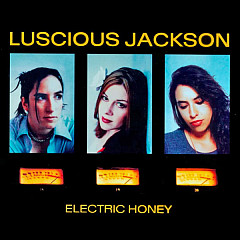This song tells the story of the fictional Billie Joe McAllister, who kills himself by jumping off the Tallahatchie Bridge. There really is a Tallahatchie Bridge in Money, Mississippi, but Gentry made up the story.
The Tallahatchie Bridge, which spans the Tallahatchie River, collapsed in 1972, but was later rebuilt.
In this song, a family finds out about the death of Billie Joe and shares gossip about him at the dinner table along with their other mundane concerns. Bobbie Gentry explained: "The message of the song revolves around the nonchalant way the family talks about the suicide. The song is a study in unconscious cruelty."
The message in the song would become even more relevant in the digital age when social networks and other tools made it easy to comment on newsworthy events. It quickly became clear that there were many folks who lacked empathy for suffering that didn't directly affect them, and these people now had many forums to share their opinions.
Gentry was familiar with the Tallahatchie Bridge since she was born and raised in Mississippi, where she grew up in a home without electricity. She learned to sing in church and her family got her a piano to nurture her musical talents. At age 13, she moved with her mother to Palm Springs, California, and in the ensuing years performed locally, taking the stage name Bobbie Gentry (her birth name: Roberta Lee Streeter - she chose the name after seeing Ruby Gentry, a 1952 movie with Jennifer Jones and Charlton Heston).
After graduating high school, she studied at UCLA, and during this time signed a deal with the publishing company Larry Shayne Music, which sent a demo tape of her song "Mississippi Delta" to Capitol Records, hoping one of the established artists on the label would record it. Kelly Gordon, a producer at the label, was impressed with the demo and wanted Gentry to record it herself, so he signed her to a deal as an artist and arranged for her to record it. Needing a flip side for the single, Gentry supplied another song she wrote with a Delta feel: "Ode To Billie Joe." Capitol heard more hit potential in that song, so they released the single with "Ode" as the A-side and "Mississippi Delta" as the flip. Released on July 10, 1967, the song went to #1 in the US on August 26, where it stayed for four weeks, becoming one of the most enduring hits of the era.
When Record Mirror asked Gentry in 1967 what was thrown from the bridge at the end of this song, she replied: "It's entirely a matter of interpretation as from each individual's viewpoint. But I've hoped to get across the basic indifference, the casualness, of people in moments of tragedy. Something terrible has happened, but it's 'pass the black-eyed peas', or 'y'all remember to wipe your feet.'"
A movie with the title spelled Ode to Billy Joe was released in 1976. The film was based on this song, with a fictionalized Gentry (named "Bobbie Lee Hartley") played by Glynnis O'Connor. Gentry was not in the film, but re-recorded "Ode To Billie Joe" for the soundtrack. This turned out to be some of Gentry's last work high-profile work, as she disappeared from the public eye soon after.
The re-released version of the song charted at #54, and the main title from the film - also composed by Gentry, made #65.
-
Along with the mystery man in "
You're So Vain," what Billie Joe throws off the bridge before he jumps is one of the great questions in pop music. Many people speculated that it was a baby, which led to his suicide. In the movie, he throws over a rag doll and jumps because he thinks he might be gay.
Gentry insists that what he throws over the bridge isn't important, and to fixate on that is to miss the point of the song - that we often respond to tragic events with cruel dissociation.
Released as Gentry's first single, this song topped the US chart for four weeks in 1967, knocking The Beatles "
All You Need Is Love" out of the top spot. The
Ode To Billy Joe album would also top the chart, displacing The Beatles
Sgt Pepper after its 15 week run at #1.
Gentry won the Best New Artist Grammy the year this was released. The song also won the awards for Best Vocal Performance, Female; Best Arrangement Accompanying A Vocalist Or Instrumentalist; and Best Contemporary Female Solo Vocal Performance.
Gentry donated her handwritten lyrics to this song to the University of Mississippi, where it is housed in a collection along with works by Tennessee Williams and William Faulkner.
Jimmie Haskell's string arrangment on this song, which won a Grammy award, was a masterwork and a feat of innovation.
Speaking with Gary Theroux in his History of Rock 'n' Roll series, Haskell said that he was given full creative freedom with the arrangement, simply because Capitol Records wasn't going to bother giving him specific instructions for a song intended as a B-side. "Bobbie's lyrics are like a movie, so I composed the string arrangement as if it were a movie," he said.
String sections at the time were typically four violins, one viola, and one cello, but Haskell used four violins and two cellos. "I was able to use one cello to play a pizzicato bass part, and the other cello to play a traditional bowed string part," he said. "I had to think of a bass line that would not make the cello sound phony because the usual bass line in those days was 'Doom, duh doom, duh doom, duh doom doom doom doom doom, duh doom...' I thought, What's my cello player gonna play that has the fewest notes? Well, I figured out a bass line with only three notes every two bars. It was, 'Doom, [snaps fingers three times], duh doom [snaps fingers three times], doom. Every once in awhile the player might add an extra note. [producer] Kelly listened to the first rehearsal. Then he walked over to where the cello was playing (it's called pizzicato when you pluck the strings). Kelly kneeled in front of the cello and put his ear near the f-hole (on stringed instruments, it sounds like a dirty word but it's because it is shaped like the letter "F") and remarked, 'Keep playing.' Kelly then asked his engineer, Joe Polito, to put the mike right on the cello. And Kelly got a good sound. I decided I couldn't write too much, so after the introduction there isn't much going on with the violins. But the cello is still playing along with Bobbie's guitar. As it turned out, all Capitol had to do was pay the string players overtime. The musicians' union eventually didn't allow arrangers to score music for two artists on the same date."
According to the song's arranger Jimmie Haskell, Gentry's original demo of this song was 7-minutes long, with at least one extra verse. That verse appears in her handwritten lyrics - it reveals that a girl named "Sally Jane" was left brokenhearted after Billie Joe jumped to his death.
The story of how this song was recorded is rather opaque, complicated by lawsuits and by Gentry refusing interviews after she left the industry. The song is comprised of just Gentry's voice, her acoustic guitar, and a string section. Her voice and guitar were likely recorded for her demo, which she did at a studio with a singer named Bobby Paris at the controls - she did some work singing backup and playing guitar for Paris, and he let her use studio time in return. Capitol records used this demo version (possibly edited down), and hired the arranger Jimmie Haskell to add a string section. On May 24, 1967, he recorded the string section at the end of a session for a group called The Checkmates, Ltd.
Where this gets sticky is the producer credit, as Gentry's voice and guitar from her demo were used on the hit recording, and Bobby Paris could claim that he was the "producer" of those sessions, even if he was just pushing the record button. After the song became a hit, Paris took legal action, and in 1975 was awarded $32,227 along with a share of future mechanical royalties.
Later in 1967, an instrumental version by The Kingpins hit #28 in the US. Ray Bryant also released a version that year that made #89.
Running 4:13, this song was longer than most hits of the era, and the longest #1 of 1967.
This song had an impact on the Country chart, going to #17. The following year, Gentry teamed up with Glen Campbell to release an album of duets called Bobbie Gentry and Glen Campbell, which went to #1. She had a few more minor hits, including "Okolona River Bottom Band" (#54), but "Ode To Billie Joe" is by far her best-known work.
When this became a hit, Rolling Stone magazine reported that it was only a 20-foot drop off the bridge and the water was deep enough so you would not get hurt. Of course, lots of people went to the bridge and jumped, which drove the local police nuts.
The Beach Boys did a reply to this song called "Ode to Betty Joe" on their album
Unsurpassed Masters, Vol. 20 (1968-1969), released with the song "It's Time." The two songs are not Beach Boys recordings, but performed by a comedy and musical group hired by the Beach Boys called the Pickle Brothers (the support group for the Beach Boys' live performances). The two songs later became recorded, pressed, and presumably vended at concerts.
>>
Suggestion credit:
Brandon - Seattle, WA
Rosanne Cash's 2014 album
The River & the Thread shows her standing on the Tallahatchie Bridge, which she visited on a trip to the South where she collected song ideas for the album. "In my mind the Tallahatchie Bridge was enormous, but it's just a little modest bridge over this little Tallahatchie River,"
she told us. "Nobody there. We sat on the bridge for a half an hour and one car went by."
Cash included Ode To Billie Joe in her live set around this time.
Country singer
Kathy Mattea recorded this for her 2018 album,
Pretty Bird.

